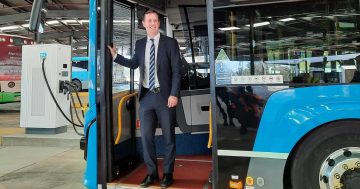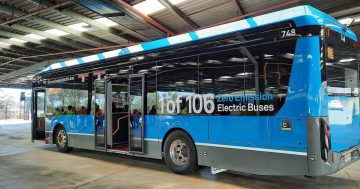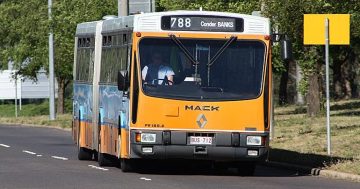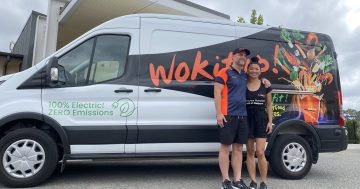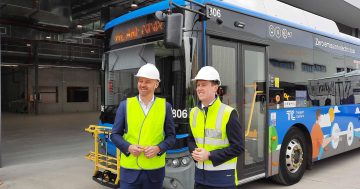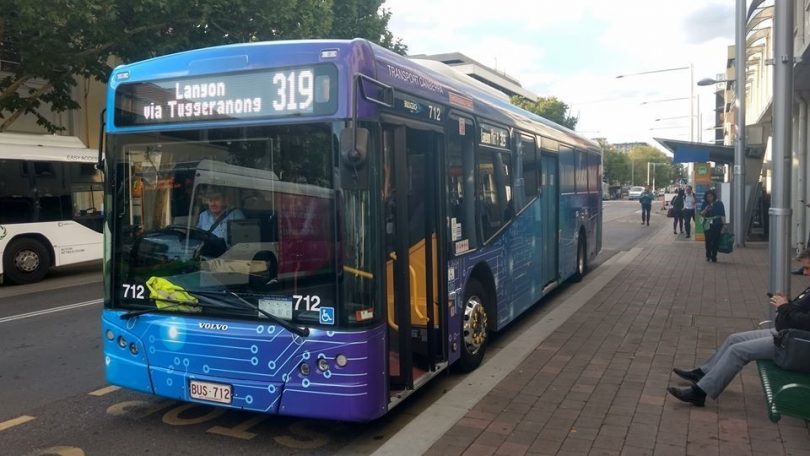
During the trial, electric buses missed 35.7 per cent of their peak services. Photo: ACT Government.
A trial of electric buses in Transport Canberra’s fleet has found that the battery-powered vehicles missed 35 per cent of their peak services, but the ACT Government said it remains determined to replace its ageing 450-strong bus fleet with zero-emissions vehicles by 2040.
The ACT Government ran a 12-month trial comparing two fully electric buses and two hybrid buses against three low-emission diesel buses which are currently the backbone of Transport Canberra’s bus fleet.
Despite the electric buses easily having the best environmental performance, the trial found that the electric buses could only carry 55 passengers due to the additional weight of its batteries, whereas their diesel counterparts could carry 68 passengers.
The trial also found that the electric buses were unreliable, missing 35.7 per cent of their peak services compared to a 0.8 per cent failure rate for diesel buses.
The electric buses also had nearly half the range of the diesel and hybrid buses, only being able to travel 450 kilometres compared to the 810-kilometre range of diesel buses.
Despite the damning comparison, ACT Minister for Transport Chris Steel said the future of diesel buses is limited due to the ACT’s commitment to transitioning to a zero-emissions fleet by 2040.
“There is no doubt that in terms of operational reliability, the diesel buses performed much better than the electric or hybrid buses, with fewer unscheduled breakdowns,” Mr Steel said in a speech to the Australian Transport Research Forum.
“The fully electric bus proved to be the most unreliable of the three bus types during the trial and often missed peak services. But this is likely to be improved with better build quality, better local familiarity and access to spare parts which would, in turn, reduce downtime and improve reliability in the future.”
Despite the failures of electric buses, Mr Steel said he believes the zero-emission buses that are now available far exceed the technology and build quality of those evaluated in the ACT trial.
The trial also surveyed passengers onboard the electric buses, with most patrons saying that that they were satisfied with both the hybrid and electric buses in terms of noise, smell and smoothness of travel.
“Despite the reliability issues experienced with the electric and hybrid buses trialled, we are very optimistic about the future of zero-emissions buses,” Mr Steel said.
“The speed in which the technology has already changed means that transit operators can have much greater confidence in new zero-emission buses that are now emerging on the market.
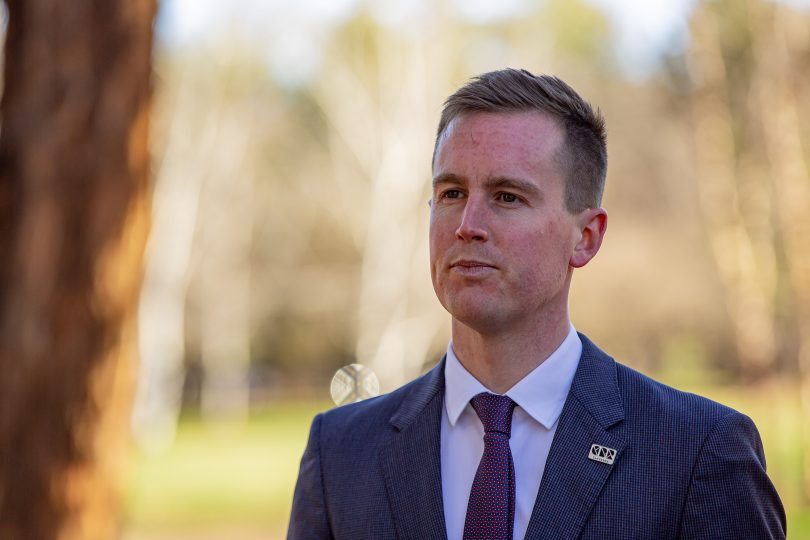
Despite the failures from electric buses in the trial, Mr Steel said the Government is committed to the 2040 target. Photo: File.
“While low emission diesel buses will still remain the backbone of our bus fleet in the medium term, their future is limited. The trial has shown that zero-emissions vehicles are a viable alternative for Canberra’s public transport network going forward.”
Mr Steel said the ACT Government will continue to review the technology and capability of electric and other zero-emission buses available including the latest trials in NSW which are demonstrating “promising results”.
“The trial results will inform the work that is already underway in the ACT to develop, plan for the infrastructure, investment and skills needed to transition to zero-emissions transport,” he said.
“These trials are enabling transit agencies like ours to develop a detailed plan for the procurement of zero-emissions buses and the infrastructure required to support it [on] a large scale, upgrades to buses and facilities, and how we ensure that zero-emission buses can reliably service our large network footprint.”
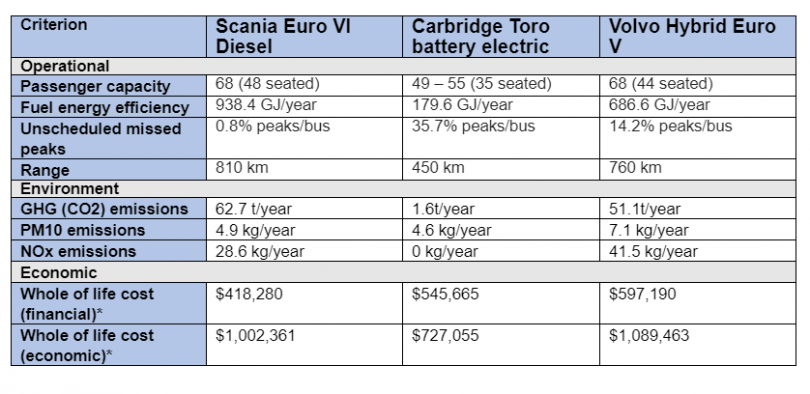
Summary of the key comparisons of diesel, electric and hybrid buses used in the trial. Chart: ACT Government.













